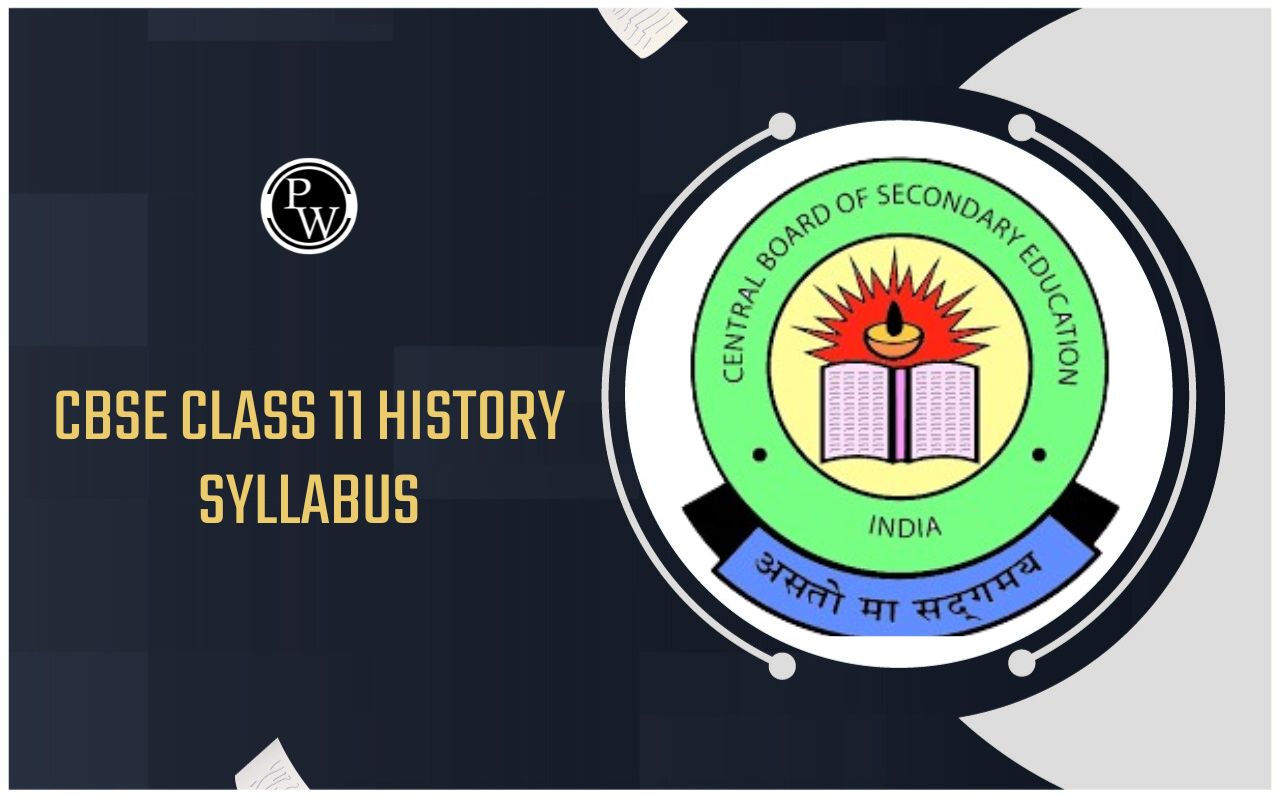
NCERT Solutions for Class 11 English Hornbill Chapter 1: Chapter 1 of NCERT Class 11 English Hornbill, The Portrait of a Lady by Khushwant Singh, is a touching memoir about the author's grandmother. The story describes her transformation from an active woman in the village to a silent, prayerful presence in the city.
Initially, she shares a close bond with the author, helping him with studies. However, as he grows older and moves to an English school and later abroad, their connection weakens. Despite this, she remains devoted to prayers. Her peaceful demise leaves a lasting impression on the author. The story highlights themes of love, tradition, and change.
NCERT Solutions Class 11 English the Portrait of A Lady Novel Chapter 1
Chapter 1 of NCERT Class 11 English Hornbill, The Portrait of a Lady Novel by Khushwant Singh, is a nostalgic account of the author's grandmother, reflecting themes of love, devotion, and change. It emphasizes the bond between grandparents and grandchildren, showing how relationships evolve over time.
The story highlights cultural contrasts, traditional values, and the inevitable passage of time. NCERT solutions for this chapter help students understand its deeper meanings, improve comprehension skills, and enhance their ability to analyze literary elements. These solutions also aid in answering exam questions effectively, fostering critical thinking and appreciation for literary narratives.
NCERT Class 11 English Hornbill Chapter 1 Question Answer
1. The three phases of the author’s relationship with his grandmother before he left the country to study abroad.
Answer:
The author's relationship with his grandmother had three phases before he left to study abroad:
-
Early childhood – His grandmother took care of him, helped him get ready, and accompanied him to the village school.
-
Boyhood – They shared a room when he moved to the city for school, but she could no longer assist with his studies.
-
Early youth – Their bond weakened when he started university and was given a separate room.
2. Three reasons why the author’s grandmother was disturbed when he started going to the city school.
Answer:
The author's grandmother was upset when he started attending the city school for three reasons:
-
She disliked Western education and Science.
-
She was disappointed that the school did not teach about God or include religious scriptures.
-
She disapproved of music, believing it was unsuitable for respectable people and was meant only for beggars and entertainers.
3. Three ways in which the author’s grandmother spent her days after he grew up.
Answer:
Three ways how the grandmother of the author spent her days after he grew up are:
1. She accepted the loneliness and lived unaccompanied in the room.
2. She would recite prayers while sitting at the spinning wheel.
3. She fed the sparrows for half an hour every afternoon.
4. The odd way in which the author’s grandmother behaved just before she died.
Answer:
Before her death, the author's grandmother remained silent and did not speak to anyone. The night before, she skipped her usual prayers and instead sang homecoming songs while beating a drum, unwilling to waste time. She later lay peacefully in bed, praying and counting her beads, ignoring her family's concerns.
5. The way in which the sparrows expressed their sorrow when the author’s grandmother died.
Answer:
Thousands of silent sparrows gathered around the grandmother’s dead body. They did not chirp or eat the bread crumbs thrown by the author’s mother. When her body was taken away, they quietly flew off. This was how the sparrows mourned her death.
Talking About The Text
Talk to your partner about the following.
1. The author’s grandmother was a religious person. What are the different ways in which we come to know this?
Answer:
The author's grandmother was a very religious woman, which was evident in her daily habits. Every morning, she visited the temple and read scriptures. At home, she constantly murmured prayers and counted her rosary beads. She even recited prayers like a song while helping the author get ready for school, hoping he would memorize them. She disliked the English school because it did not teach about God or scriptures. Even while spinning her wheel, she would pray. Before her death, she once forgot to pray but later spent her last moments reciting prayers and counting her beads.
2. Describe the changing relationship between the author and his grandmother. Did their feelings for each other change?
Answer:
During his boyhood, the author depended completely on his grandmother, who played a vital role in his life. However, their relationship changed when they moved to the city. Since he started going to school by bus, she could no longer accompany him. Though they still shared a room, she could not help with his studies. She often asked what he learned at school but did not believe in the subjects taught, especially since there was no mention of scriptures or God. She was also upset when music was introduced, as she disapproved of it. After that, she rarely spoke to him, and their bond weakened further when he moved to a separate room at the university.
Despite the distance, their love for each other remained unchanged. When he left for higher studies abroad, she went to the railway station to see him off. Without showing any emotion, she kissed his forehead, which the author later cherished as their last physical interaction. Five years later, when he returned, she welcomed him warmly at the station, embraced him, and celebrated his homecoming by beating a drum and singing songs.
3. Would you agree that the author’s grandmother was a person strong in character? If yes, give instances that show this.
Answer:
Yes, I agree that the grandmother of the author was a person with a strong character. She was a woman with strong beliefs. Though she was not educated formally, she was serious about the education of the author. She was not able to adjust herself to the western lifestyle, English and Science education. She did not like music and disapproved of its teaching in schools.
She was a deeply religious woman who always murmured prayers and counted her rosary beads. Every day, she visited the temple and read scriptures. She was upset when she learned that Khushwant's new English school did not teach about God or religious texts.
She was also kind-hearted, feeding dogs in the village and sparrows in the city. Though old and physically weak, she had a strong will. Before her death, she refused to talk to her family, wanting to make up for the prayers she had missed the previous evening. She lay peacefully in bed, praying and counting her beads until her last breath.
4. Have you known someone like the author’s grandmother? Do you feel the same sense of loss with regard to someone whom you have loved and lost?
Answer:
Yes, my grandfather took care of me and loved me deeply. Before retiring, he served as a Colonel in the army for 20 years. When I was in school, he was still smart and active. He enjoyed jogging, walking, and playing outdoor games. He inspired us by waking up early and believed that a healthy body leads to a healthy mind.
He taught us simple exercises, encouraged us to eat nourishing food and drink milk, and made sure we studied before school. In the afternoons, he asked about our lessons and helped with homework, guiding us in writing, reading, and problem-solving. He was gentle but firm and emphasized good character and habits.
Sadly, he passed away when I left the country for higher studies. Whenever I see his photograph on the wall, I feel a deep sense of loss, but his presence continues to inspire me to stay strong and face life’s challenges.
Thinking About Language
1. Which language do you think the author and his grandmother used while talking to each other?
Answer:
The grandmother of the author was not educated. I think the author and his grandmother used Punjabi, which was their mother tongue while talking to each other.
2. Which language do you use to talk to elderly relatives in your family?
Answer:
The elderly relatives in my family are well versed in Hindi and English. I greet them in English and converse with them in Hindi.
3. How would you say ‘a dilapidated drum’ in your language?
Answer:
‘Phata-purana dhol’ is the expression used to say ‘a dilapidated drum’ in my language.
4. Can you think of a song or a poem in your language that talks of homecoming?
Answer:
There are numerous poems and folk songs that sing of the exploits of the brave warriors. All these talks of the homecoming of the warriors after winning a war.
Working With Words
I. Notice the following uses of the word ‘tell’ in the text.
1. Her fingers were busy telling the beads of her rosary.
2. I would tell her English words and little things of Western science and learning.
3. At her age one could never tell.
4. She told us that her end was near.
Given below are four different senses of the word ‘tell’. Match the meanings to the uses listed above.
1. make something known to someone in spoken or written words
2. count while reciting
3. be sure
4. give information to somebody
Answer:
Phrases Meaning
1. telling the beads count while reciting
2. tell her give information to somebody
3. one could never tell be sure
4. told us make something known to someone in spoken or written words
II. Notice the different senses of the word ‘take’.
1. to take to something: to begin to do something as a habit
2. to take ill: to suddenly become ill
Locate these phrases in the text and notice the way they are used.
Answer:
In the text, these phrases are used as follows:
1. to take to: She took to feeding sparrows in the courtyard of our city house.
2. take ill: The next morning she was taken ill.
1. My grandmother was an old woman. She had been old and wrinkled for the twenty years that I had known her. People said that she had once been young and pretty and had even had a husband, but that was hard to believe.
2. When we both had finished we would walk back together.
3. When I came back she would ask me what the teacher had taught me.
4. It was the first time since I had known her that she did not pray.
5. The sun was setting and had lit her room and verandah with a golden light.
These are examples of the past perfect forms of verbs. When we recount things in the distant past we use this form.
Answer:
Notice the form of verbs highlighted in the sentences below:
1. They had already reached their destination when the rain came.
2. Before she left me, we had worked together for six months on that project.
3. The teacher had explained the poem twice, to help students understand it well.
4. Since I had lived there it was the first time it began to rain.
5. The full moon in the sky had scattered its light everywhere.
NCERT Solutions for Class 11 English Hornbill Chapter 1 PDF
Below is the NCERT Solutions for Class 11 English Hornbill Chapter 1 PDF. This chapter, The Portrait of a Lady by Khushwant Singh, explores themes of love, tradition, and change through the bond between the author and his grandmother.
The NCERT Solutions provide a detailed understanding of the text, helping students improve their comprehension and analytical skills. Download the PDF below to access the complete solutions.
NCERT Solutions for Class 11 English Hornbill Chapter 1 PDF
Study without using the internet
Benefits of Using NCERT Solutions for Class 11 English Hornbill Chapter 1
Better Understanding of the Chapter – The solutions provide a detailed explanation of The Portrait of a Lady, helping students grasp its themes, characters, and literary elements.
Accurate Answers – The solutions are structured according to NCERT guidelines, ensuring correctness and clarity for exam preparation.
Improved Writing Skills – Well-explained answers help students learn how to structure their responses effectively.
Exam Preparation – These solutions cover all important questions, making revision easier and boosting confidence for exams.
Enhanced Vocabulary & Comprehension – Students improve their language skills by understanding the context and meaning of the text.
Time-Saving – Ready-made solutions help students quickly find answers, reducing effort in searching for explanations.
Concept Clarity – Difficult words, phrases, and ideas are simplified, making it easier for students to relate to the story.
NCERT Solutions for Class 11 English Hornbill Chapter 1 FAQs
What is the main theme of "The Portrait of a Lady"?
How does the author describe his grandmother?
How did the grandmother's relationship with the narrator change over time?









